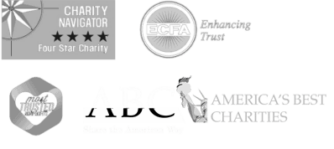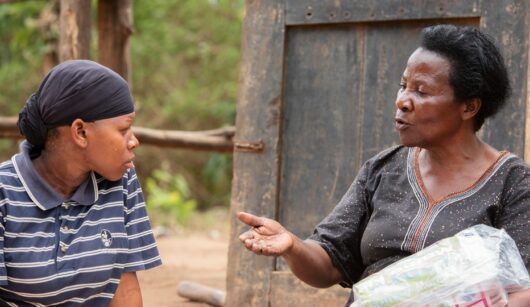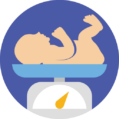
99%
of all maternal deaths occur in developing nations
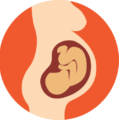
800+
women die every day due to pregnancy and childbirth complications
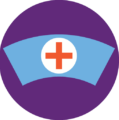
1 in 16
the chance of a woman dying in childbirth in sub-Saharan Africa
Imagine if you had to bring your own medical supplies to give birth in a hospital
In Uganda, women have to purchase and bring birthing and medical supplies as basic as gloves and a razor blade if they want to give birth in a hospital. For women living in extreme poverty, far from a hospital, the cost of these supplies and the cost for transport to get to the hospital are overwhelming obstacles.
You can change that by giving a Mama Kit to a pregnant mother with no means to buy these things for herself.
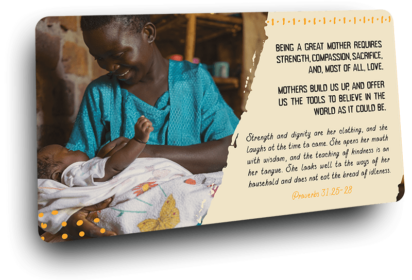
Give a Mama Kit in honor of a mother and download this bookmark to let her know.
What's a Mama Kit?
Bright Hope’s church partners in these Ugandan and Zambian communities saw a need and asked if we could help with a Hope for Today project. So together we have developed two Mama Kits that can be given to pregnant mothers in rural villages where we work. There are two kits for pregnant mamas:
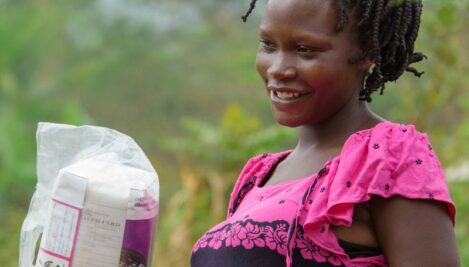
Mama Kit - Labor and Delivery supplies
- Plastic sheets to keep the area clean and sterile
- Surgical gloves for the midwife
- Cotton, gauze
- A cord band ligature and sterile razor blade for tying off the umbilical cord
- A child health and immunization card to encourage the mom to get the child vaccinated
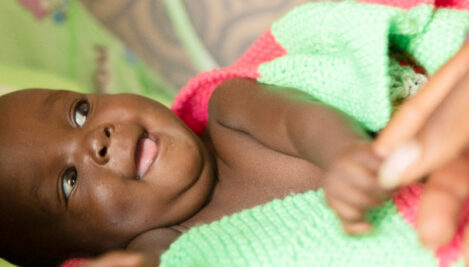
Mama Kit - New Baby Necessities
- Two sets of receiving blankets
- Baby hats, socks, and gloves
- Onesies and warm clothing
- Mosquito net (to protect against malaria)
- Baby soap and oil
- Diaper bag
Each kit is $25.00 and is assembled in-country. To ensure the health of the mother and baby, we encourage expectant moms to get three prenatal check-ups from a local health center during the course of their pregnancy. After their third visit, mothers will receive a Mama Kit.
Aminah: Pregnant in Uganda
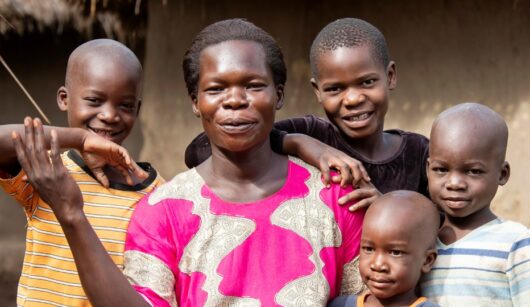
Aminah is expecting to give birth in December. Her first three children were born at the main hospital, but those experiences were not good. In Uganda, if women don’t bring their own medical supplies to the hospital for the delivery, the nurses may send them home or refuse to help them.
The women have to bring things as basic as surgical gloves. To get prenatal care, there are long lines of waiting to be seen, to be admitted, and to get attention from a midwife. “Unbearable” is how Aminah described it. There is also little to no privacy.
After three babies, though, there was yet another factor that made her reconsider where she would even give birth to future children: Aminah had to travel the long distance from her village to the hospital, on the back of a bicycle, while in labor.
Aminah ultimately decided to give birth to her fourth child at home. But giving birth at home has its own risks. A dirt floor, hiring a trained midwife to help with the birth, risk of infection, always wondering, “What if something goes wrong?”
The birthing process for women who live in poor rural villages around the world is frightening. Conditions are incredibly challenging, supplies are nonexistent, and trained midwives are few.
Aminah is still not sure whether she will deliver at home or at the hospital because she hasn’t yet acquired the required items.
Interested in learning more?
Get our "Five Tragic Facts..." fact sheet and learn what can be done to help these vulnerable moms and babies.
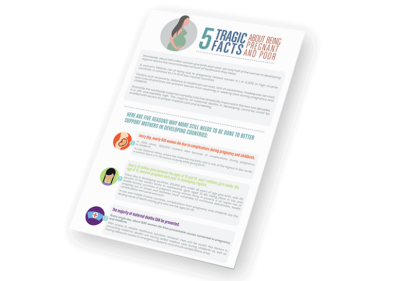
Margaret is a 52-year-old midwife from Kasaga Village. Margaret says, “I was trained to guide and lead mothers to the hospital for a safe delivery, but the hospital is very far from here.”
The Nakaseke hospital is 30 miles away, so many women opt to have their babies at home or wait so long that they cannot make the trip.
“There are too many complications that arise when a woman is giving birth at home,” Margaret said. Dirt floors, lack of supplies and a lack of a sterile knife to cut the umbilical cord can all cause serious problems, such as tetanus.
Sometimes they use dirty thread to tie off the umbilical cord and stop the blood flow, but, tragically, it can lead to disease. Lack of clean water, healthy food and having to work by candlelight all cause increased risks of death and other problems for the mother or baby.

“I haven’t witnessed a more overlooked group of women than pregnant mothers in poor rural villages. It is amazing how a simple kit can possibly save two lives – the mother and child.”
C.H. Dyer
Bright Hope CEO
A Partner You Can Trust
One of Bright Hope’s highest values is integrity. We understand the value of every dollar we receive and the difference every dollar can make in the life of someone in extreme poverty. We value the trust you have given us to effectively and efficiently deliver help to those in need.

The Bright Hope Promise
Bright Hope is a registered 501(c)(3) charity, and a member of the Evangelical Council for Financial Accountability. We have been engaging the local church around the world for more than 45 years in the global fight against extreme poverty in their communities. We are committed to helping the extreme poor with the most effective and efficient methods, and we promise to treat every penny donated as if God, Himself, gave it to us.

